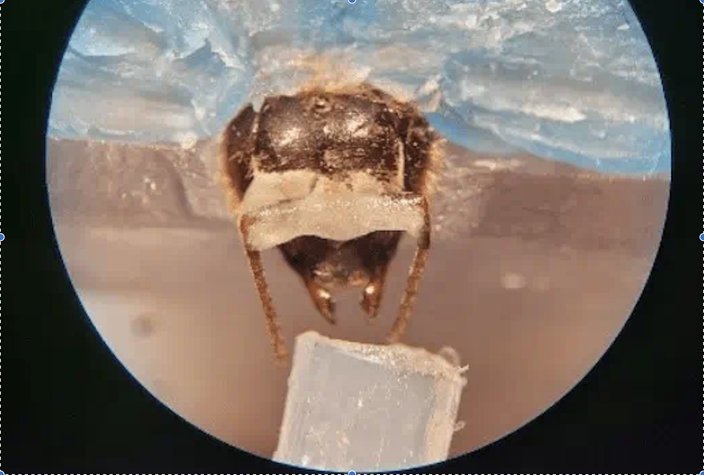
June 13, 2024
 Source/Image licensed from Ingram Image
Source/Image licensed from Ingram Image
Honeybees can detect lung cancer in humans through their powerful sense of smell, new research shows.
Honeybees produce wax and honey. Bees and other animal pollinators help 35% of the world's crops reproduce. And now researchers have found that honeybees can help detect lung cancer through their powerful sense of smell.
"Insects have an amazing sense of smell the same way dogs do," said Debajit Saha, an assistant professor at Michigan State University.
MORE: A nurse learned she was pregnant and had MS on the same day. An advanced therapy helps her thrive
Studies have shown dogs can detect a variety of cancers, including lung cancer, by smelling people's breath, skin, urine, sweat and feces.
So Saha and his team decided to examine whether honeybees could differentiate between the chemicals in the breath of healthy people and those with lung cancer. The study found honeybees can pick up determinants of lung cancer from people's breath, and also distinguish between different lung cancer cell types.
The researchers created a tiny, custom harness with a 3-D printer that could hold a honeybee while they opened its skull and attached a microscopic electrode to its brain. This allowed researchers to track changes in the bee's brain signals as synthetic lung cancer odors and healthy breath samples were applied to the bee's antenna.
A honeybee detects odors on a sample during a recent study that found bees can sniff out lung cancer in human breath.
By measuring how their brain neurons were firing, researchers found that bees could differentiate between minute changes in the chemical concentrations of the breath mixtures.
The study, published in the journal Biosensors and Bioelectronics, may provide the foundation for more "biological and smell-based disease detection technologies," Saha said.
The honeybee study follows a wide scope of research showing the efficacy of dogs as a medical diagnostic tools.
A 2023 review of scientific evidence showed that dogs were able to detect COVID-19 in humans faster than polymerase chain reaction, or PCR, tests. In addition to detecting lung cancer through smell, trained dogs also have been able to sniff out colorectal, ovarian and other types of cancer.
 Saha lab/Michigan State University
Saha lab/Michigan State University